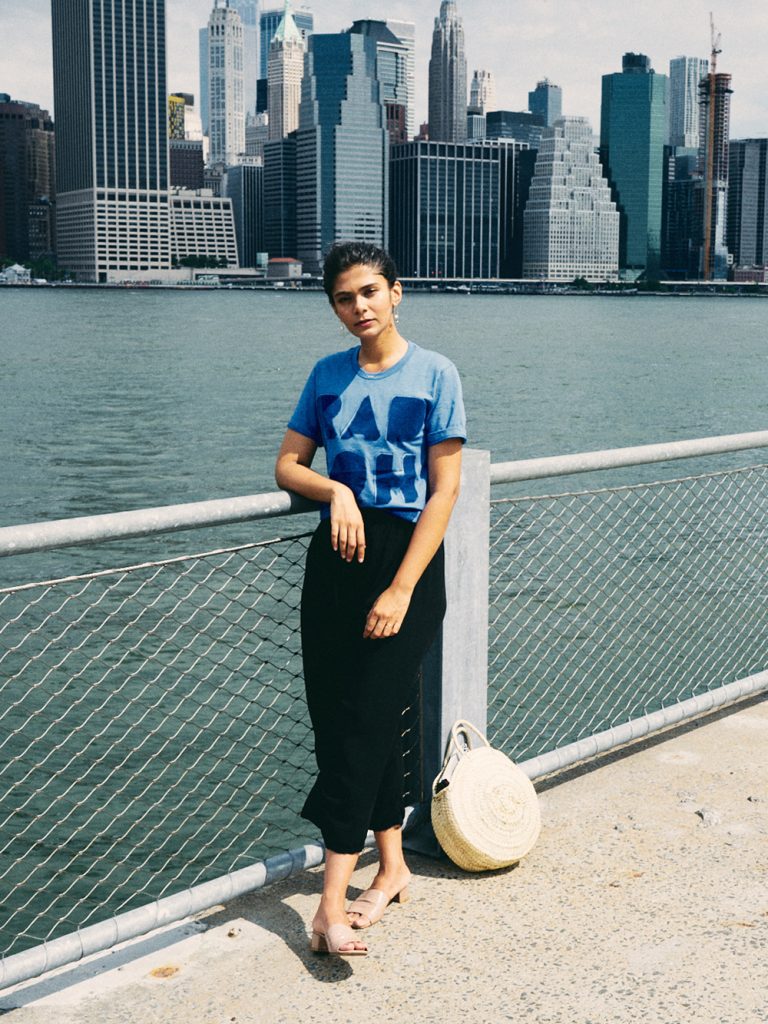
TASNIM AHMED /
WRITER
As a young woman and a Bangladeshi-American immigrant, Tasnim’s diverse background and position in Western society give her a mature understanding and empathy that encourage sensibility in her writing. A journey of a thousand miles begins with a single step. Tasnim’s work and vision have shown us how personal practice can enable a chain of changes, which furthermore joins positive forces together in the greater society.
Tasnim Ahmed devotes herself to prompt better social awareness by sharing diverse perspectives and examples, through not only her honest writings but also her friendly and accessible digital media — Journal.
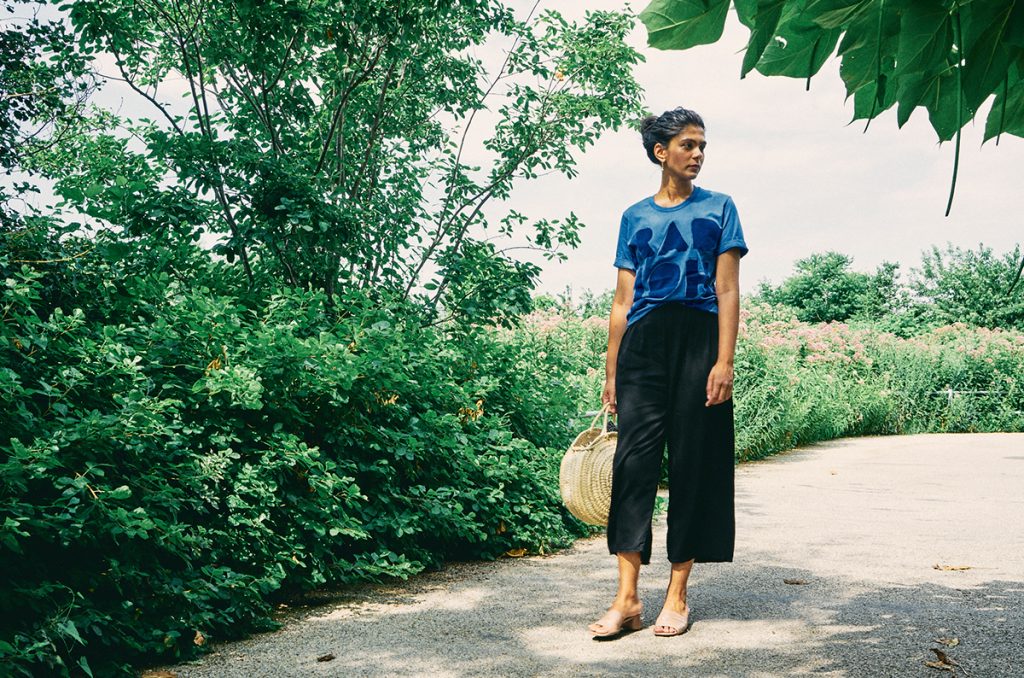
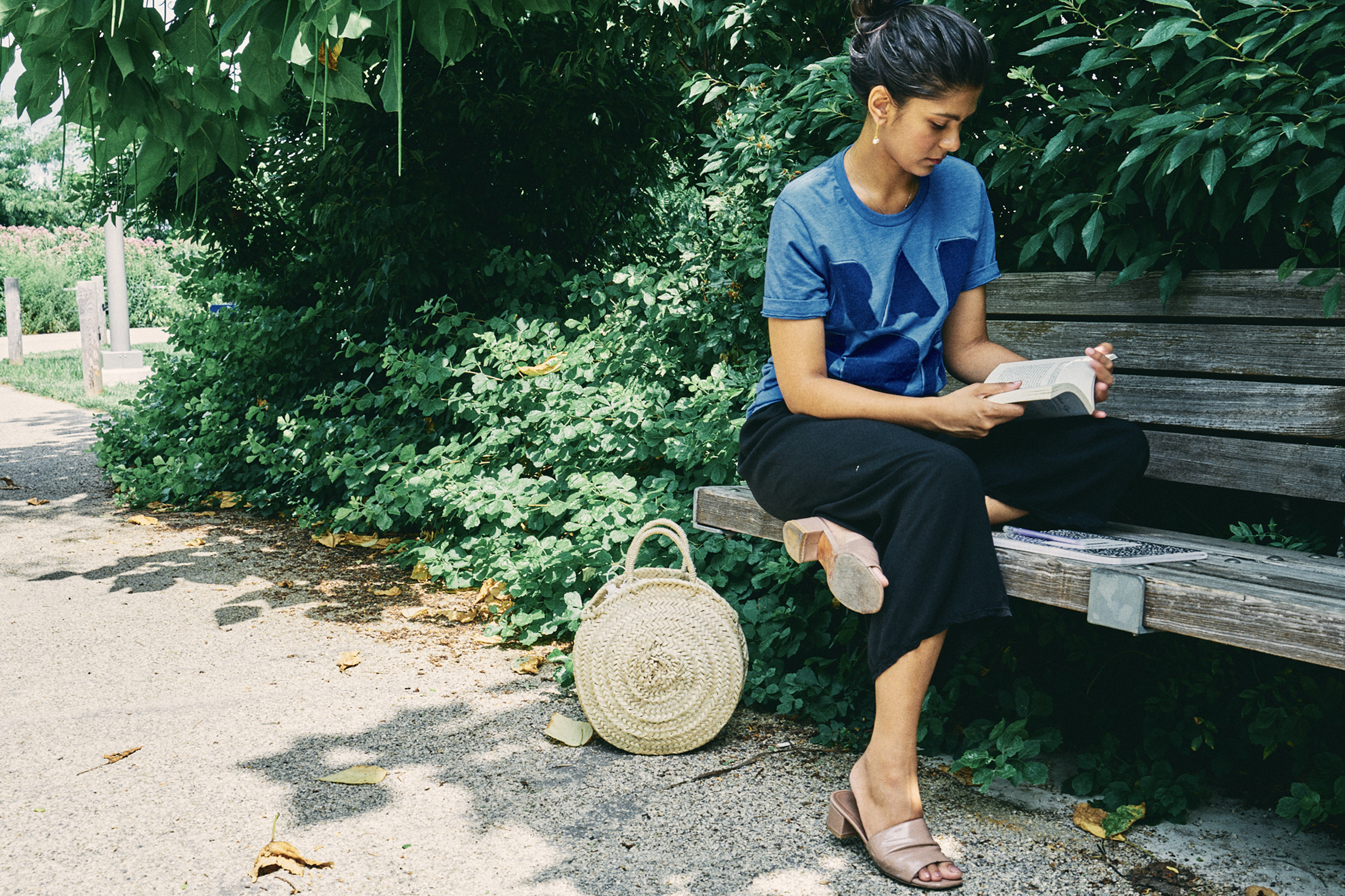
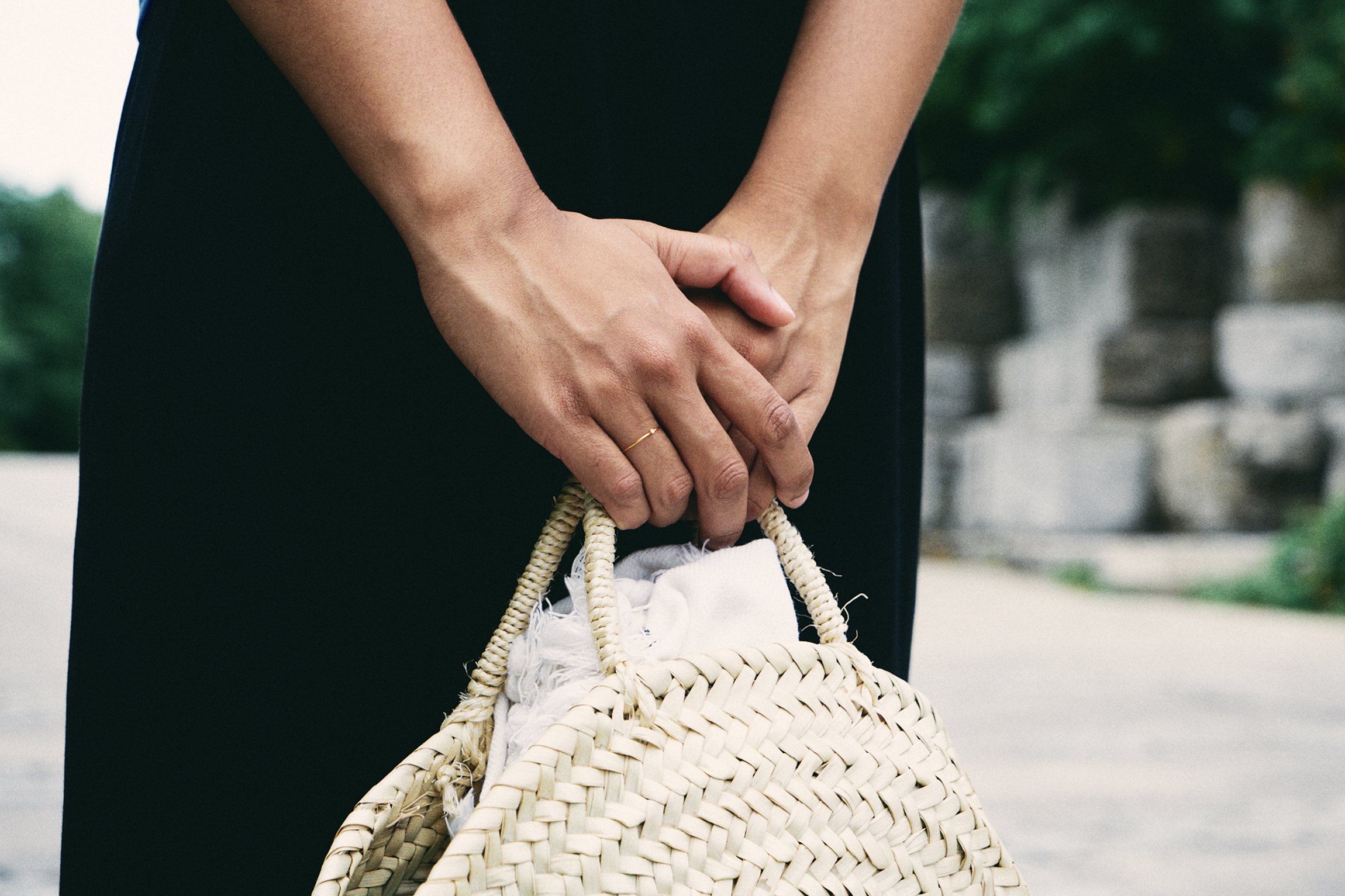
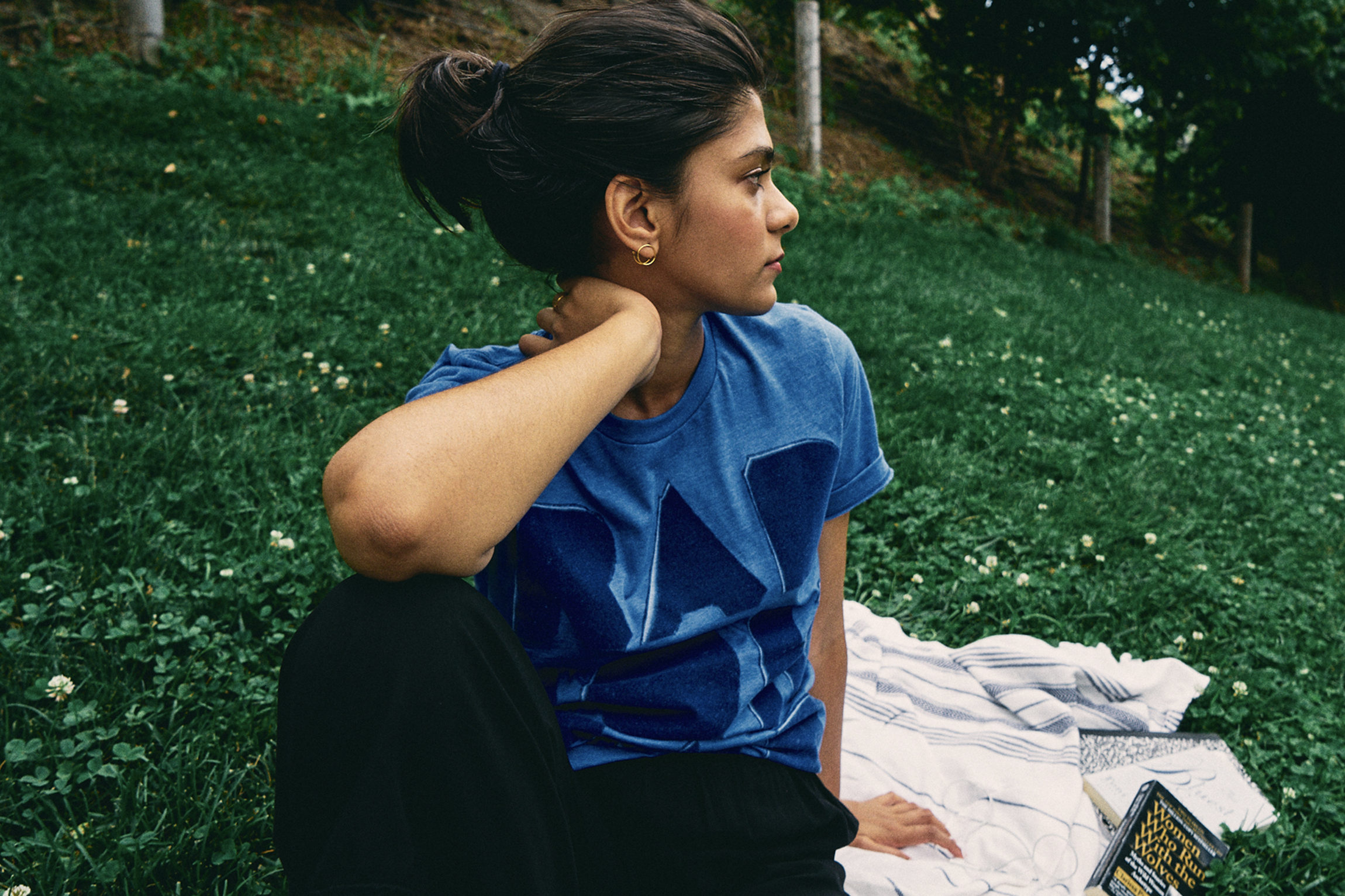
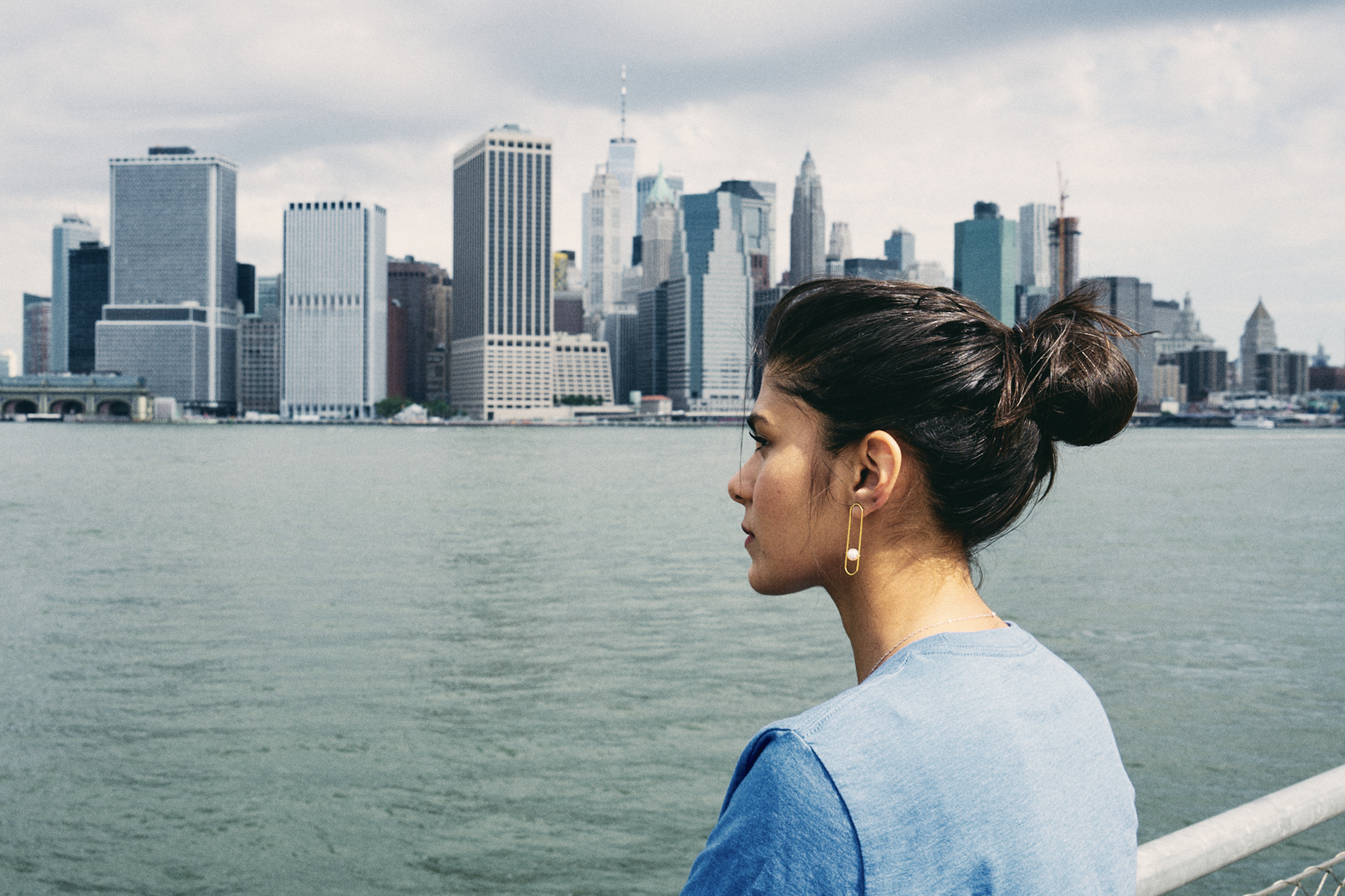
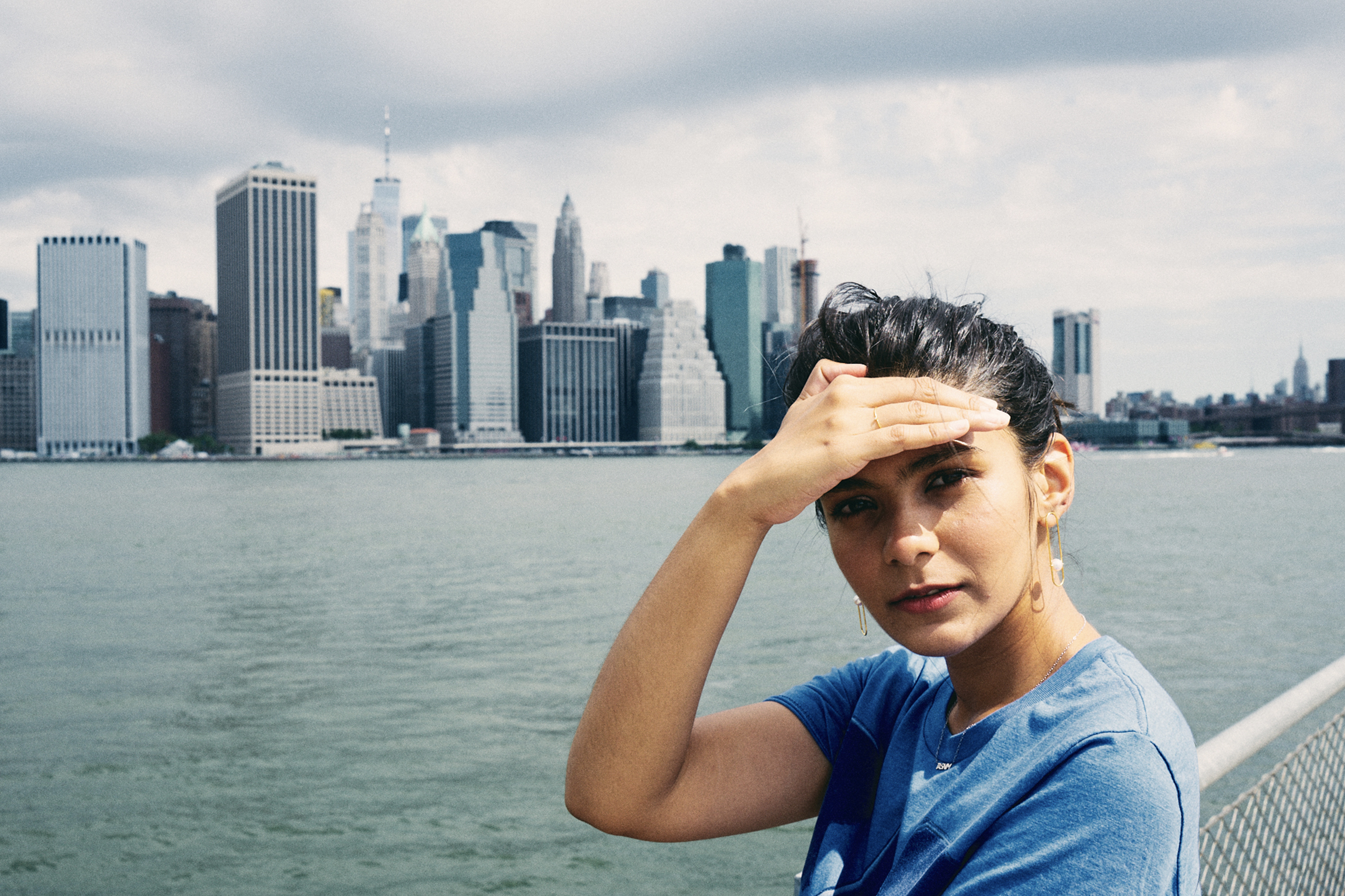
Hello, Tasnim! Can you tell us about yourself and what you do?
I am a writer and the founder of Journal. I grew up all over the place; I was born in London, raised in Dhaka, the capital of Bangladesh, and moved to Toronto for university with the urge to study English. However, since my traditional South Asian parents expected me to choose a more proper degree, I ended up studying international relations and political science as my major.
I got into writing at a very young age. Back when I was 9 or 10 years old, I started making my own newspaper and would actually print it out for others to read. It sort of grew into a lifelong passion for me. I was always reading tons and tons of books and sometimes even reading dictionaries for fun! People may think that to be a writer, you need to be trained or born with the talent that sets you above the rest. But I know a lot of people coming from non-traditional backgrounds who also are extremely brilliant writers. I think the key to writing is just the combination of feeling really passionate and strongly about things. It could also be a scary thing too because you could be writing something so personal to you, yet it may not resonate with anyone, and eventually, it could be a hurtful process. There was a time where I had stopped writing for two years and just worked a regular nine-to-five job, but then I kept finding myself coming back to writing, which is the best way I know to express myself.
Back then, I didn’t know people could actually write for a living. I had always thought that only well-known writers like Joan Didion or Jhumpa Lahiri could make a substantial living. To support my own passion for writing, I worked office jobs and multiple retail jobs at the same time while writing on my own Tumblr blog. And by continuously writing on my blog, I eventually made connections with many other writers and readers which led me to a freelance opportunity at a digital magazine called Thought Catalog. I took the job offer and moved to New York.
How has the city shaped you into who you are today?
It’s such a cliche to say New York makes people tough, but it really does! It is extremely hard to live, to work, and to survive in this city. It definitely made me a lot tougher and smarter with the decisions I make and the people I surround myself with. At the same time, New York also taught me to be vulnerable and more open. I used to always be a reserved person and I realized that in order to build connections and communities, the only way to begin is to go out, say hi, and start a conversation. In the end, the city has made me more vulnerable and confident in who I am.
Are you seeing a positive change in New York now that many artists, like Journal, are joining forces together for making better social improvements?
I believe in the strength in unity, especially when we are in a place right now where one bad thing after another keeps on happening, and it is really difficult to constantly keep hope. But when people come together, the voice, the action, and the outcome get so much stronger too. People can enact change when they are persevering. A lot of times, you may feel like your work is not going anywhere and nothing is actually happening, but there is always that 1% where the smallest effect happens and then all is worth it. All the effort made will spread eventually, and if you don’t do anything at all, how do you expect anything to happen in the first place?
I want to help educate people so that they can make their own decisions based on the information shared among them. I was an old immigrant when I first moved to America. I moved here at the age of 20 and was extremely shocked by how even though America is considered the greatest democracy in the world, how little information is actually shared and how little knowledge we all have of things. So, I think we are very lucky to live in New York City where it is multicultural and variable. Even if there’s a lot of divisiveness and social issues going on in New York City alone, we are able to express as well as use our power and our influence to do better things that help make changes to the outlook of people. We might never see the result in our lifetime, but we could always create change for the next generation, like better drinking water or creating a cleaner environment. I have realized that if you think of change only as how it will affect yourself personally, the change never works; you have to think about how this will affect the greater group of others and the generations to come.
Since Journal is based here in New York, your subjects are mostly focused in the city and in America. In the future, would you like to bring the same influence to other cultures as well? Perhaps to Asia where you originated from?
I spent most of my former years in Bangladesh, from the age of 8 to 18. It wasn’t until after I left the country that I realized how bad things were and how little that I’ve done. I kind of lived in a bubble where there was poverty and homelessness all around me but I didn’t see it and even became immune to it. When I left and returned to the country a year later for the first time, that was the time I started seeing Dhaka and Bangladesh in a completely different light. When I was a kid, all I thought about was leaving. But later on, I started to see the beauty in my own country and that my country needed help too, and it could benefit from people like me, who have had any access to diverse influences and information. I often say I could never imagine leaving New York, but I certainly would love to go back and help make a difference in the social scene in Bangladesh.
Doing Journal alone, how do you deal with yourself in terms of self-doubt and hardships?
When I’m stuck, I usually try to walk away from the roadblock that’s in my mind. I have realized that if I’m staring at my own problem constantly, the more I’m unable to deal with it. I am very fortunate that I have a group of close friends who are like sounding boards to me. I can talk to them when something strikes me and when I’m in difficult times of doubting myself. It is a combination of taking time off from the problem and coming back with a fresh mind, as well as having a reflective support group.
Can you name a person who has brought you great inspiration through your life?
I would say that the person is my grandmother. She passed away about a year ago. She was a really tough woman who got married at a very young age, had 9 kids, and moved to London where she raised her entire family, then moved back to Bangladesh during the liberation war, where she protected her family and nurtured them. My grandmother never held any grudges or wished ill on any people even when people were doing terrible things to her. Nothing stopped her from being kind, giving, and loving towards others. When she passed away, there were hundreds who came to pay their condolences and shared that she had touched their lives in some way. She never had a lot of money, but she always gave money to charity and also cooked a giant batch of food every Friday and distributed it to the poor. It was hard for me to cope with her death, but at the same time, I also started thinking of ways to honor her death: taking her teachings and implementing them in my life and how I treat others.
Can you share with us a quote or phrase that has inspired you deeply?
I come across this everywhere and my grandmother told me this: Just be yourself.
It is something I like to think about and stay true to. There have definitely been conflicting times where I felt like I had to perform in another way, but then I would quickly realize that the most important thing is that we are all different and unique, and we all have something different to bring. So, it is really important to stay true to who you are. It eventually creates love for yourself. When you love yourself, people are drawn to that energy and you could create something beautiful and inspiring for others as well.
Self-love is something we were never taught. When we think of love, we think of love in terms of loving or sacrificing for somebody else. But we don’t think that in order to love someone else, you have to make sure you love yourself first. It is not about being selfish but being honest about who you are.
Besides writing, what other fields of occupation interest you as well?
Recently, I have been watching and reading a lot about animal sanctuaries and rescues. If I weren’t writing or doing the things I do now, I would love to work at an animal sanctuary that helps rehabilitate chimps or red pandas (I am very drawn to those two).
With all the people that you have encountered and interviewed through Journal, what characteristic in a person attracts you the most?
Honesty is the most important thing to me. All my friends are characteristically very different from each other; some are introverts and some are extroverts. But the one thing that draws me to people is honesty. Honest people are trustworthy and willing to take the first step forward to let you know that you can be vulnerable around them. I realized that all the people that I have interviewed are frank and honest with who they are and their life’s work, which is something I find very precious and wonderful.
Can you share with us the books you have read recently?
I usually tend to pick up a couple of books at the same time. Recently, I got really into Toni Morrison, who is an incredible black female writer and Noble Prize winner. I’ve been reading two of her books: Sula and The Bluest Eye. She just writes everything from female friendships to racism or relationships in such a poetic way.
Another author’s work that I’ve been reading a lot is Bell Hooks. She writes more about social issues, and one book I read in particular is called Feminism is for Everybody, which was written to make feminism easier to understand for people. Because she acknowledges that a lot of liberal issues are written in very difficult academic language, she wants to create works that are more accessible to anyone like me, my mom, or even my friends. Bell Hooks once said, “Don’t think about feminism as tryings of gender equality, but think of it as ending sexist depression and sexism.” When you think of it that way, it forces you to realize that women can be sexist towards other women too and that it is sexism that we need to fight against. I’ve been really enjoying and feeling so enlightened by her work.
In any of your past readings, have you read about any character that you relate to?
Honestly, I would say no. So far, I haven’t read about any character that I could totally resonate with. Back when I was studying in Bangladesh, we used to study classic literature illustrated by white people, from Shakespeare to Jane Austin. It definitely exposed me to a lot of great work, but I couldn’t see myself in any of those works. As I grew older, I do find familiarity in some authors’ works, not in the characters but the environment that they create. For example, Jhumpa Lahiri is an Indian-American writer whose work deals a lot with immigrant identities and the culture of her parents’ birthplace – Kolkata, India. And just from the way she describes rain or the sound of birds takes me back to Bangladesh, and I could really relate to that.
Do you have any personal practice to bring yourself to inner peace?
I just take my time to breathe! I realized after a very long time that I was actually breathing the wrong way, so I do these yoga practices from YouTube to help me stretch and breathe correctly. When I am stressed out, I try to just clear my mind and focus on my breathing. Some people may think that taking care of yourself means spending money or going to the gym or to a spa. But more importantly, you can heal from within simply by taking a moment to breathe deeply.
If you were a color, what would it be?
Blue! I have loved the color blue since I was a little girl. Before I was born, my parents thought that my gender was a boy because I was kicking so much in my mom’s belly. All my first outfits were bought in blue. Maybe that was where it all started (laughs).
How did you discover your own value and identity, and how do you sustain it?
It has been difficult. I grew up as a very shy child and experienced bullying during my adolescence. I definitely went through a tough time finding my own value. I believe we all just need to experience certain dark times in order to be strong and figure out what you value about yourself. It wasn’t until I was in my 20s that I started to realize that I am special too and there’s a lot in me that only I can share.
Lastly, how would you like to be seen and remembered?
I would like to be seen and remembered as someone who was able to help change people’s ways of thinking for the better, someone who was able to educate and engage people. It is tricky now with social media where people can easily judge and remember you by how you present yourself online, and I kind of want to change that. I want to be more considerate about how I present myself and the honest context I deliver on social media.
Exposed in the age of digital media, it is impossible to deny the unconscious indulgence and intake of negativity affected by the furious and provocative social media. The conversation with Tasnim has given us an alarming reminder that building a credible and righteous newsfeed is a necessary duty for each individual. It is even more so a practice of awareness and self-love. Fair, compassionate, and full of integrity, Tasnim has shown us an inspirational example by taking action in social innovation.
Photography by Chaunte Vaughn, interviewed by Crystal Cheng, and edited by Phoebe Chang
The jewellery in this interview comes from our classic collection. Click here for more information.
